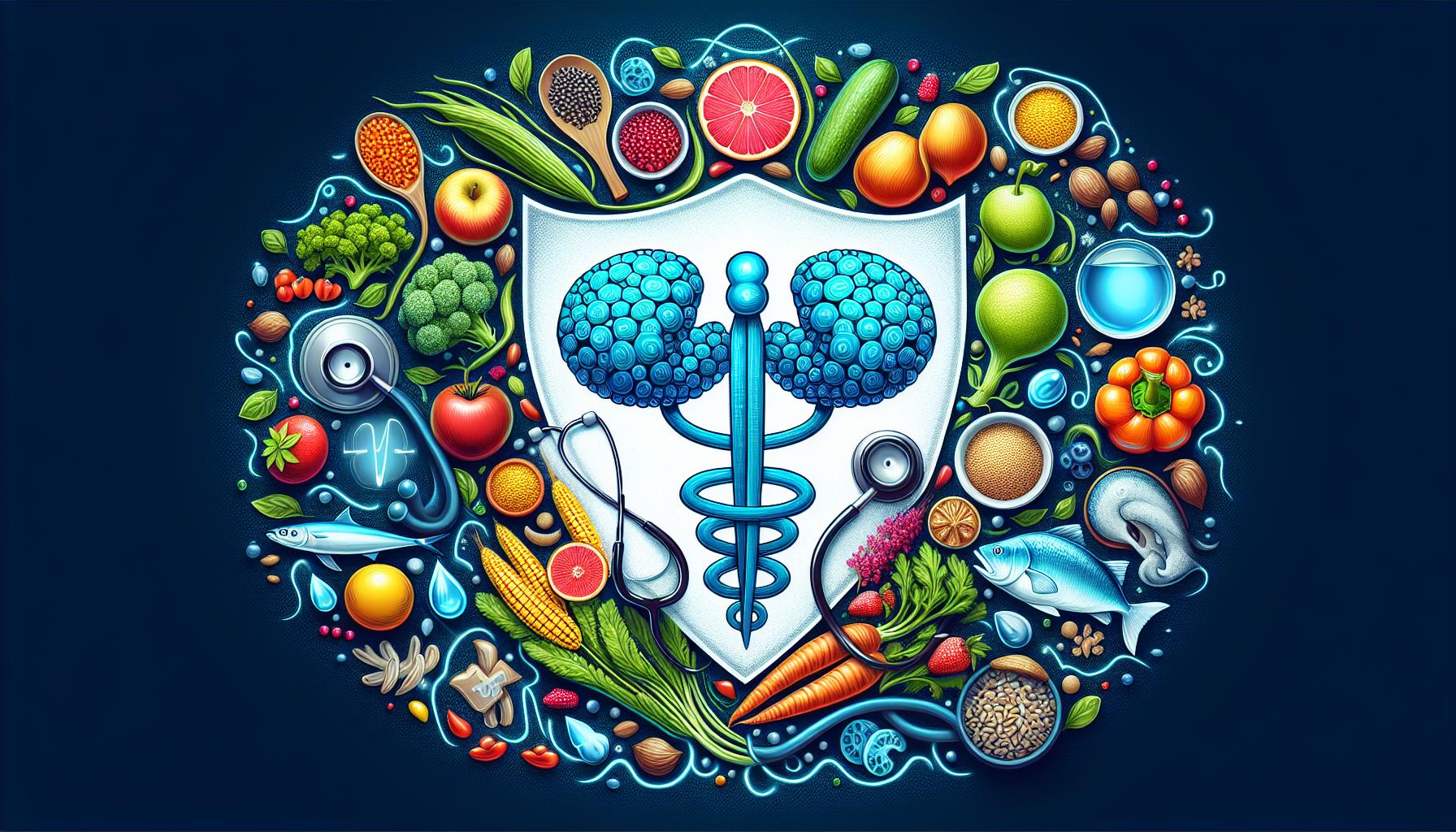Introduction: The Food Factor for Fending Off Cancer
What, you may wonder, are the top foods that prevent prostate cancer? The best defense is a combination of low-fat, high-fiber foods rich in antioxidants and essential vitamins. The aim is empowering everyone, but particularly the men who stand a risk of developing prostate cancer, with the nutritional knowledge necessary to take charge of their health and make smart food choices. Throughout this guide, we’ll unravel the secrets of essential cancer-fighting foods, and guide you toward a healthier way of living – plate by plate.
Front-Runner Foods in the Fight Against Prostate Cancer
First and foremost, it’s all about balance. No single food or food group can guarantee cancer prevention, but certain foods are definitely stars in the battle. Fruits, cruciferous vegetables, and legumes all pack a powerful punch in preventing prostate cancer. They are rich in antioxidants, fibers, and several key vitamins which assist the immune system and battle against malignant cells.
The Radiance of the Rainbow on Your Plate
Balance is key, but there’s more to the mix. Your plate should be as colorful as a rainbow, rich in fruits and vegetables like tomatoes, broccoli and pomegranates. Their rich, vibrant hues dually serve as nature’s flag of nutrient density and disease-fighting abilities.
The Gift of the Grains
Next on our nutrition nudge are whole grains. Whole wheat, oats, barley, and brown rice are packed with fibers that help lower cholesterol levels. Not only do these grains keep your heart healthy, they have the knack for knocking out harmful cells in your body which could otherwise develop into prostate cancer.
Green Tea – Brewed Benefits in a Cup
Could a simple cup of green tea whisk away your woes of prostate cancer? While it may not be the magic potion we’ve been searching for, its high levels of antioxidants provide a proficient defense against cancer-causing cells.
Omega-3 Fats and Fends Off Cancer
Ever heard of omega-3 fatty acids? These champions of cholesterol have excellent anti-inflammatory properties. Found in seafoods such as salmon, mackerel, and sardines, omega-3 fats may help reduce the risk of prostate cancer. It’s about more than just seafood in the sea of nutrition, flaxseeds and walnuts are also excellent sources of this essential nutrient.
The Prostate Protector – Pomegranates
Rounding up our primer of prostate cancer preventing foods, the humble pomegranate deserves its place in the spotlight. Early studies suggest its juice may help slow the growth of prostate cancer cells, thanks to its high concentration of antioxidants. Symbols of health, longevity, and fertility in many ancient cultures, the pomegranate is making a comeback as a protector of prostate and health champion.
Conclusion: Harnessing the Power of Nutrition
So, there you have it. The simple act of eating – or better yet, eating well – can act as a shield against the risk of developing prostate cancer. So, stock your pantry with whole grains, load your fridge with fruits, vegetables, and seafood, and might we suggest, add a pomegranate or two for good measure. Knowledge truly is power when it comes to safeguarding your health.
Frequently Asked Questions
1.
Does eating healthy guarantee I won’t get prostate cancer?
No, eating healthy doesn’t guarantee you won’t get prostate cancer. But having a well-balanced, nutritious diet could significantly reduce your risk.
2.
Should I stop eating meats to prevent prostate cancer?
You don’t have to eliminate meats completely, but you should opt for lean meats in moderation and avoid processed meats.
3.
Does red wine help prevent prostate cancer?
The verdict is still out on this one, but moderate consumption of red wine, which contains antioxidants, could potentially have preventative properties.
4.
Does vitamin E prevent prostate cancer?
Vitamin E is a potent antioxidant and may provide some protection against cancer, but more research is necessary to confirm its effects on prostate cancer.
5.
Can I prevent prostate cancer through diet alone?
A healthy diet plays a crucial role, but it’s equally important to maintain regular exercise, avoid smoking, limit alcohol consumption, and get regular check-ups.


